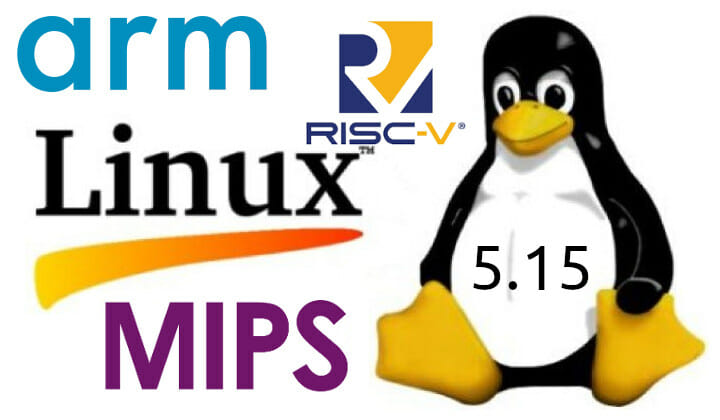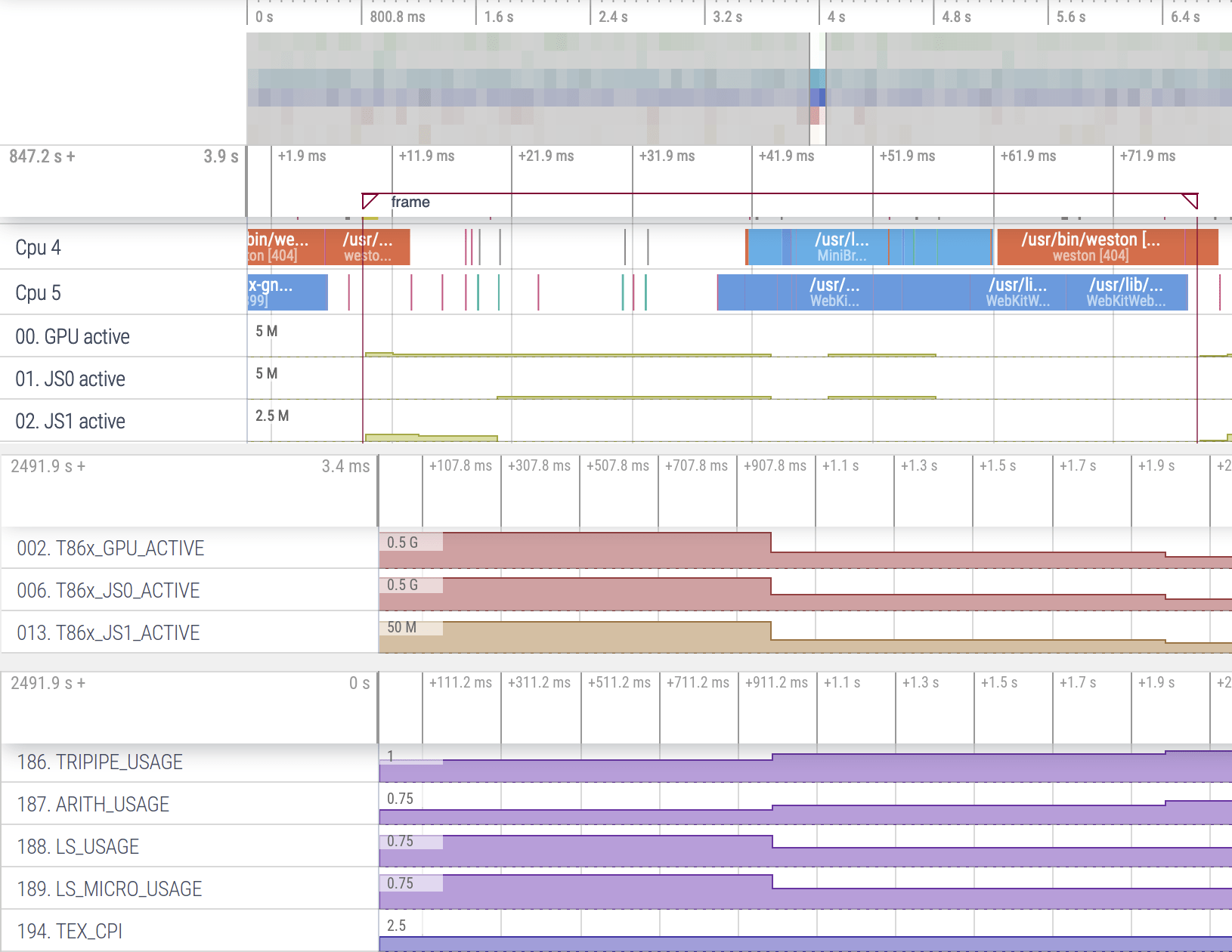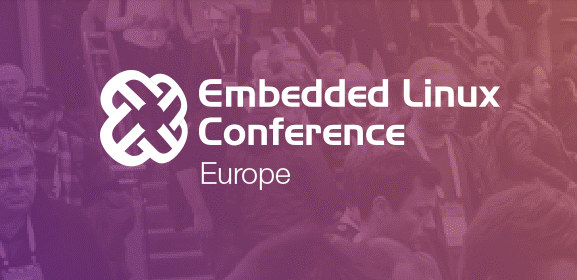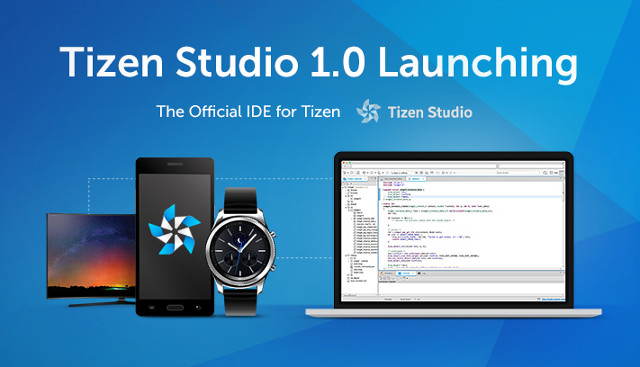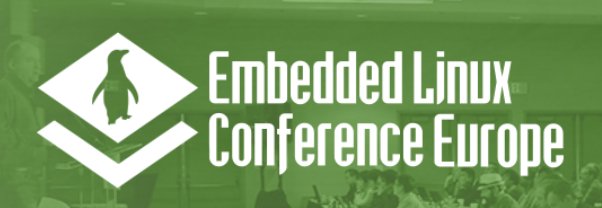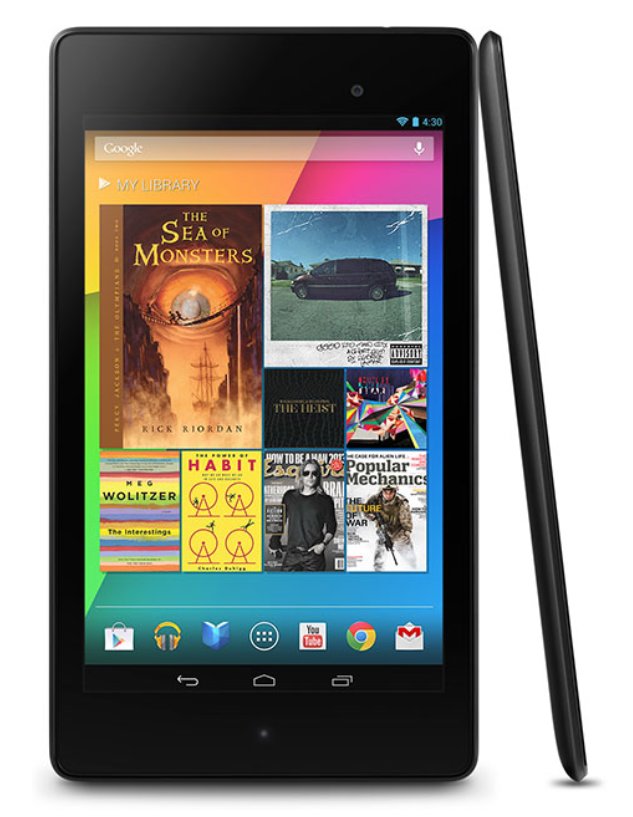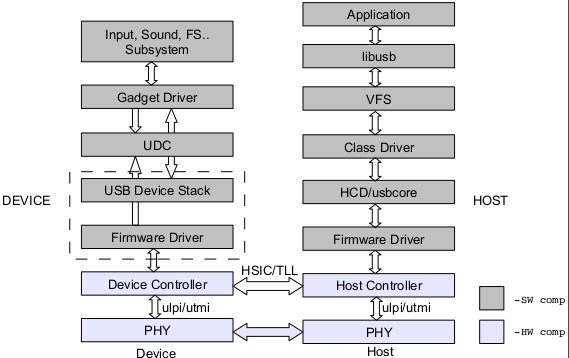Linus Torvalds released Linux 5.15, an LTS version, this past Sunday: It’s been calm, and I have no excuse to add an extra rc, so here we are, with v5.15 pushed out, and the merge window starting tomorrow. Which is going to be a bit inconvenient for me, since I also have some conference travel coming up. But it’s only a couple of days and I’ll have my laptop with me. Sometimes the release timing works out, and sometimes it doesn’t.. Anyway, the last week of 5.15 was mainly networking and gpu fixes, with some random sprinkling of other things (a few btrfs reverts, some kvm updates, minor other fixes here and there – a few architecture fixes, couple of tracing, small driver fixes etc). Full shortlog appended. This release may have started out with some -Werror pain, but it calmed down fairly quickly and on the whole 5.15 was […]
Perfetto Profiler Now Supports Mali GPU Hardware Counters via Panfrost
Perfetto is an open-source system profiler, app tracer, and trace analyzer for Linux, Android & Chrome platforms, and user-space apps. The program can already visualize CPU and memory usage, as well as power consumption. GPU support is more limited with the program only capable of sampling the GPU frequency when the driver outputs that information via ftrace. When Perfetto is also extendable thanks to a Tracing C++ SDK that “allows userspace applications to emit trace events and add more app-specific context to a Perfetto trace”. Collabora made use of the tracing SDK to add support for Mali Midgard GPU performance profiling in gfx-pps project using the Mali GPU hardware counters exposed via Panfrost open-source Mali GPU driver. After following the installation instructions, you’ll be able to run the following executables for tracing and profiling: tracedtracing service. traced_probes OS probes service. perfetto command-line tool for recording traces. producer-gpuproviding the Panfrost data […]
Embedded Linux Conference (ELC) Europe 2019 Schedule – October 28-30
I may have just written about Linaro Connect San Diego 2019 schedule, but there’s another interesting event that will also take place this fall: the Embedded Linux Conference Europe on October 28 -30, 2019 in Lyon, France. The full schedule was also published by the Linux Foundation a few days ago, so I’ll create a virtual schedule to see what interesting topics will be addressed during the 3-day event. Monday, October 28 11:30 – 12:05 – Debian and Yocto Project-Based Long-Term Maintenance Approaches for Embedded Products by Kazuhiro Hayashi, Toshiba & Jan Kiszka, Siemens AG In industrial products, 10+ years maintenance is required, including security fixes, reproducible builds, and continuous system updates. Selecting appropriate base systems and tools is necessary for efficient product development. Debian has been applied to industrial products because of its stability, long-term supports, and powerful tools for packages development. The CIP Project, which provides scalable and […]
Tizen Studio 1.0 Replaces Tizen SDK for Smartphones, Wearables and TVs
Tizen has converged all Tizen SDK for mobile, wearables, and TV to Tizen Studio since the beginning of the month, and released Tizen Studio 1.0 for developers interested in developing app for Tizen smartphones, TVs and/or smartwatches such as the latest Samsung Gear S3. So instead, you’ll now be able to select the targets platform and profiles within Tizen Studio. Some of the key changes made to the development environment in Tizen Studio 1.0 include: Launching tools: Installer, Uninstaller, and Package Manager Developing tools: IDE perspective theme, Project Wizard, Certificate Manager, and Menu and tool icons UI tools: UI Builder, Component Designer, and EDC Editor Testing tools: Emulator Testing tools: Dynamic Analyzer for memory and CPU profiling Other improvements in Tizen application development environment Tizen Studio is available for the 32-bit and 64-bit version of Windows, and Ubuntu, as well as for Mac OS with one version with the graphics […]
Embedded Linux Conference Europe 2013 Schedule – Build Systems, Security, Device Tree, Debugging & Profiling Techniques, and More
Embedded Linux Conference Europe 2013 will conveniently start right after LinuxCon 2013, last 2 days (October 23-24), and take place at the same location: the Edinburgh International Conference Center, Edinburgh, United Kingdom. The Linux Foundation has published the schedule for the conference, so I’ll make my own virtual schedule with sessions that I find particularly interesting. Thursday – 24th of October 9:30 – 10:10 – Timeline For Embedded Linux by Chris Simmonds, Consultant, 2net Limited Today, Linux is woven into the fabric of our technology. Things such as printers, routers, TVs and phones all have their own “Inner Penguin”. Yet it was never originally intended to be used beyond desktop and server PCs. A lot of things had to happen before Linux could break out of the PC environment and make its way in the world as a jobbing jack-of-all-trades. Since the early beginnings of embedded Linux in the late 1990’s many people have contributed […]
LinuxCon Europe 2013 Schedule – Web Technologies, Debugging Techniques, Wayland, and More
I’ve just received an email from the Linux Foundation saying the schedule for LinuxCon and CloudOpen Europe 2013 had been made available. The conference will take place for 3 days (October 21-23, 2013) in the Edinburgh International Conference Center, Edinburgh, United Kingdom. There will be over 100 conference sessions, and several co-located events including: Automotive Linux Summit, the Embedded Linux Conference, Gluster Workshop, KVM Forum, Tizen Summit, Xen Project Developer Summit. As I’ve recently done with LinuxCon North America 2013 and ARM TechCon 2013, I’ll make a virtual schedule with selected developer sessions using the event’s schedule builder. You may find out several sessions will also be given in LinuxCon North America. Monday – 21st of October 11:00 – 11:50 – Bluetooth Smart Devices and Low Energy Support on Linux by João Paulo Rechi Vita, INdT This presentation will cover a brief introduction on how the Bluetooth Low Energy technology […]
Google Releases Android 4.3 Jelly Bean, Unveils New Nexus 7 Tablet
Yesterday was a big day for Google with several important announcements, including the Chromecast HDMI TV dongle, an updated version of Nexus 7 tablet, and the release of Android 4.3, still codenamed Jelly Bean. In this post, I’ll start with the hardware, and move to explain what’s new with Android 4.3, and where you can download source and images for your device. New Nexus 7 The new Nexus 7 tablet will run Android 4.3 on the following hardware: SoC – Qualcomm Snapdragon S4 quad-core processor @ 1.5GHz with Adreno 320 GPU @ 400MHz System Memory – 2GB RAM Storage – 16GB to 32GB of storage Display – 7″ IPS display (1920 x 1200) Connectivity – Dual band 802.11a/b/g/n WiFi (2.4G/5G), Bluetooth 4.0, and NFC Camera – 5MP rear camera and 1.2MP front camera Video Output – HDMI output (via SlimPort) Audio – Stereo speakers, 3.5mm headphone jack, microphone USB – […]
USB Debugging and Profiling Techniques – ELCE 2012
Kishon Vijay Abraham and Basak Partha, respectively software design engineer and tech lead at Texas Instruments, provide an overview of techniques that can be used to debug Linux USB drivers on the host PC or/and the device itself. Abstract: The widespread integration of USB into embedded applications presents many developers with the challenge of debugging problems, that are difficult to detect and isolate when a USB device misbehaves. This paper discusses about the various USB debugging techniques which includes debugging at the host PC, at the device and in the cable and discuss when each of the above techniques will be handy. This paper will also discuss about the various facilities provided within Linux kernel to aid in USB debugging e.g sysfs, trace points etc. and the various user space tools available to help USB debugging e.g USBMON. This paper also discusses about the profiling techniques at various levels in […]


